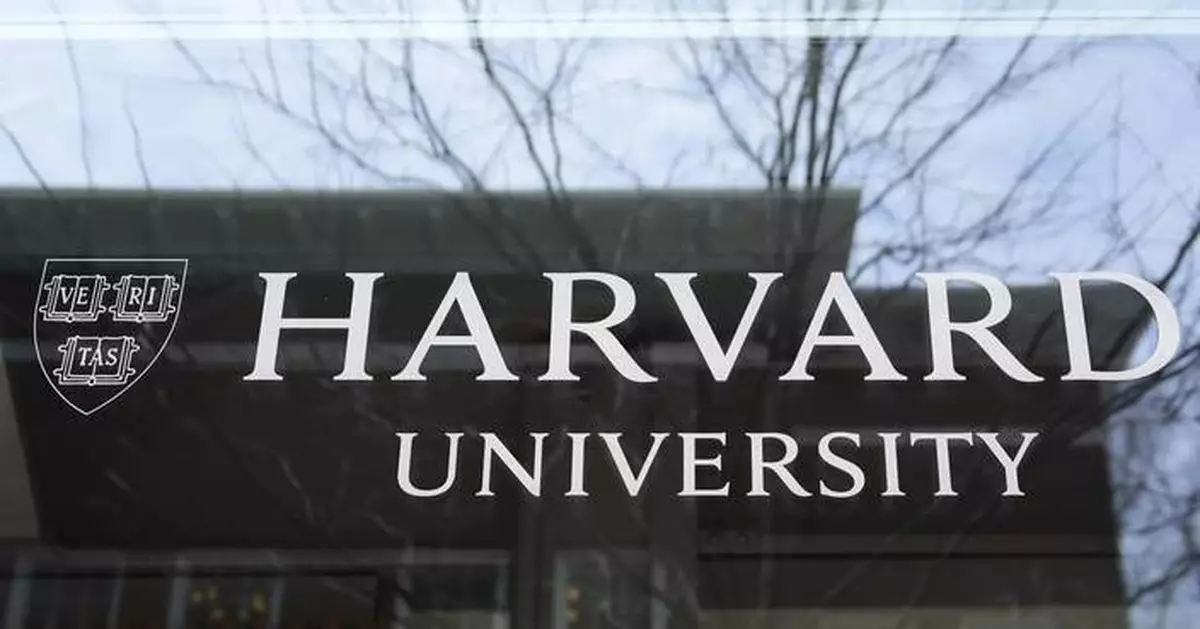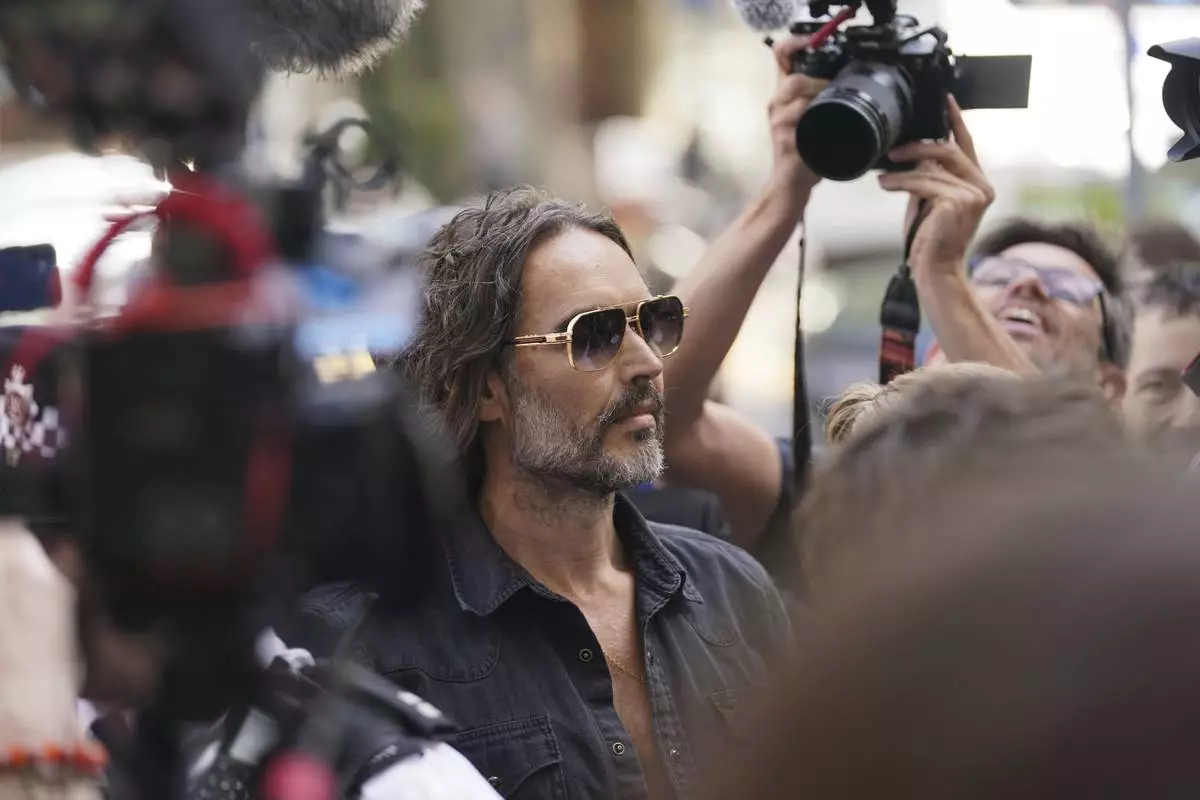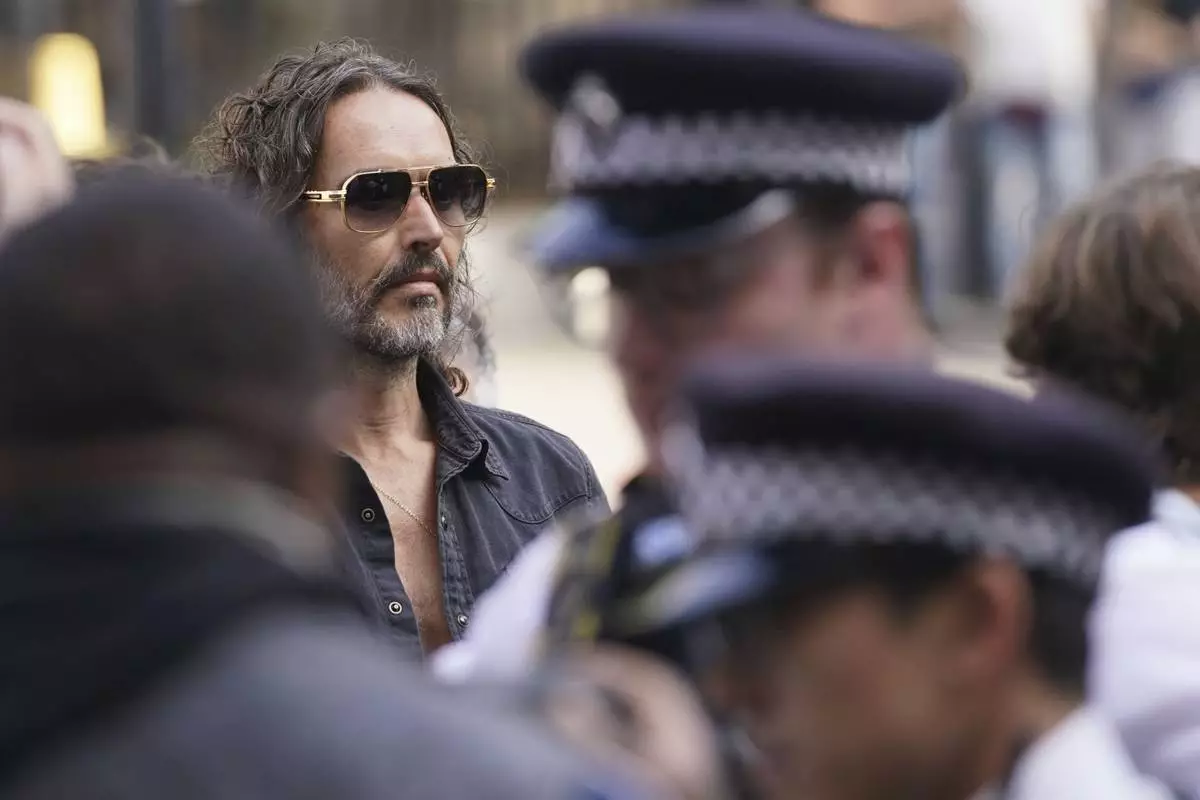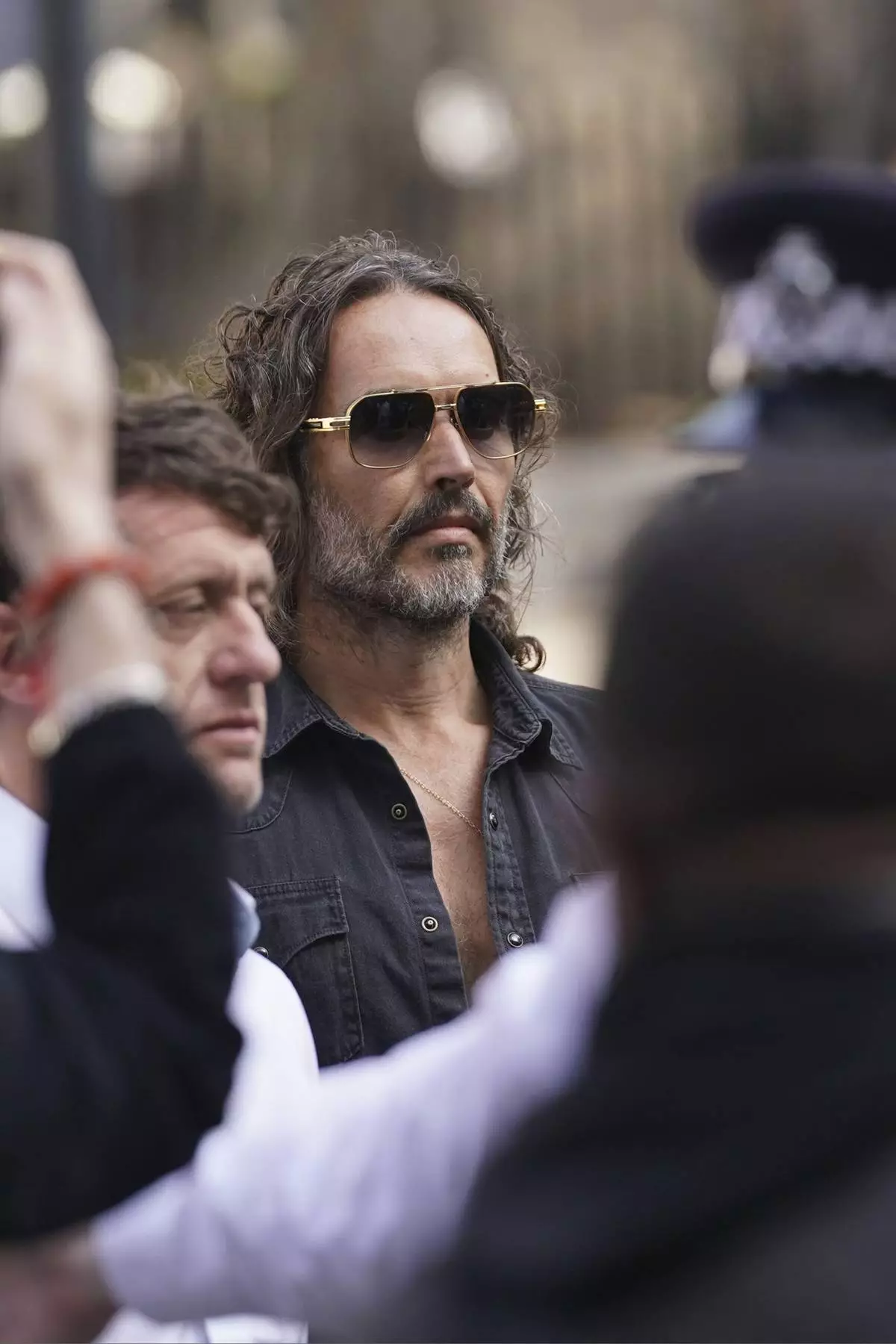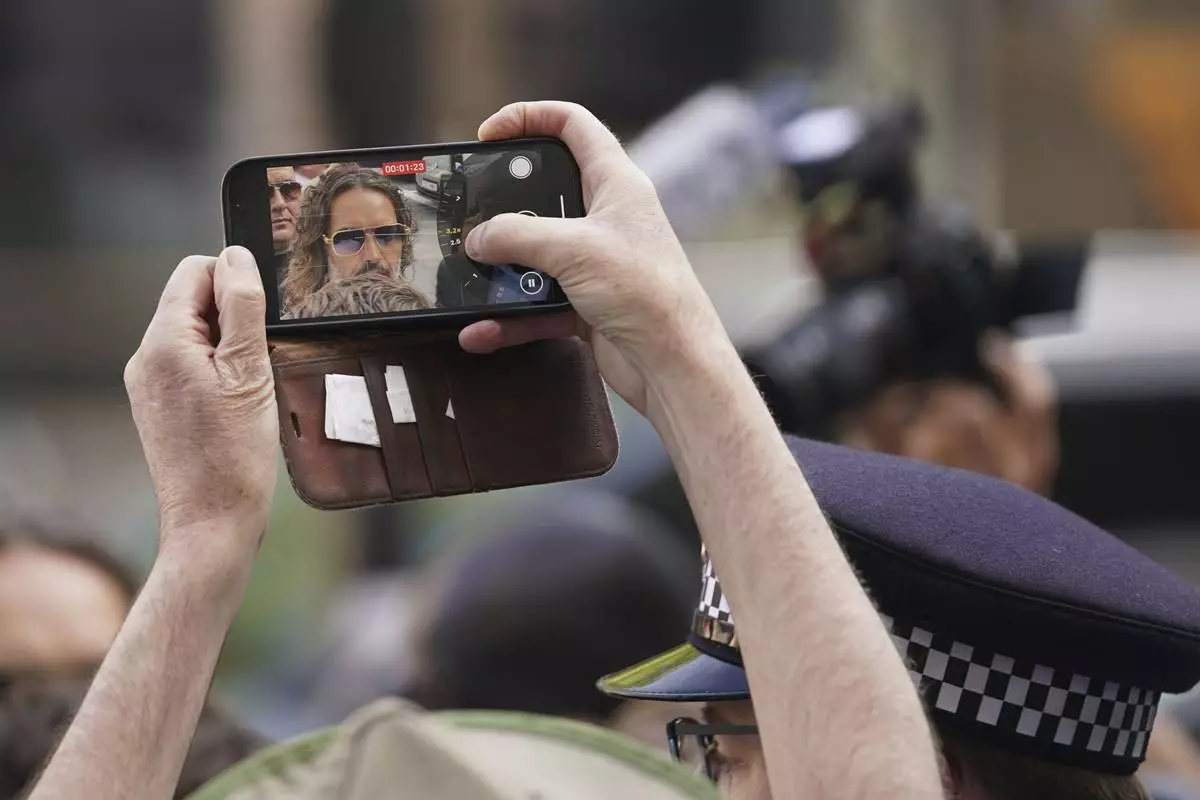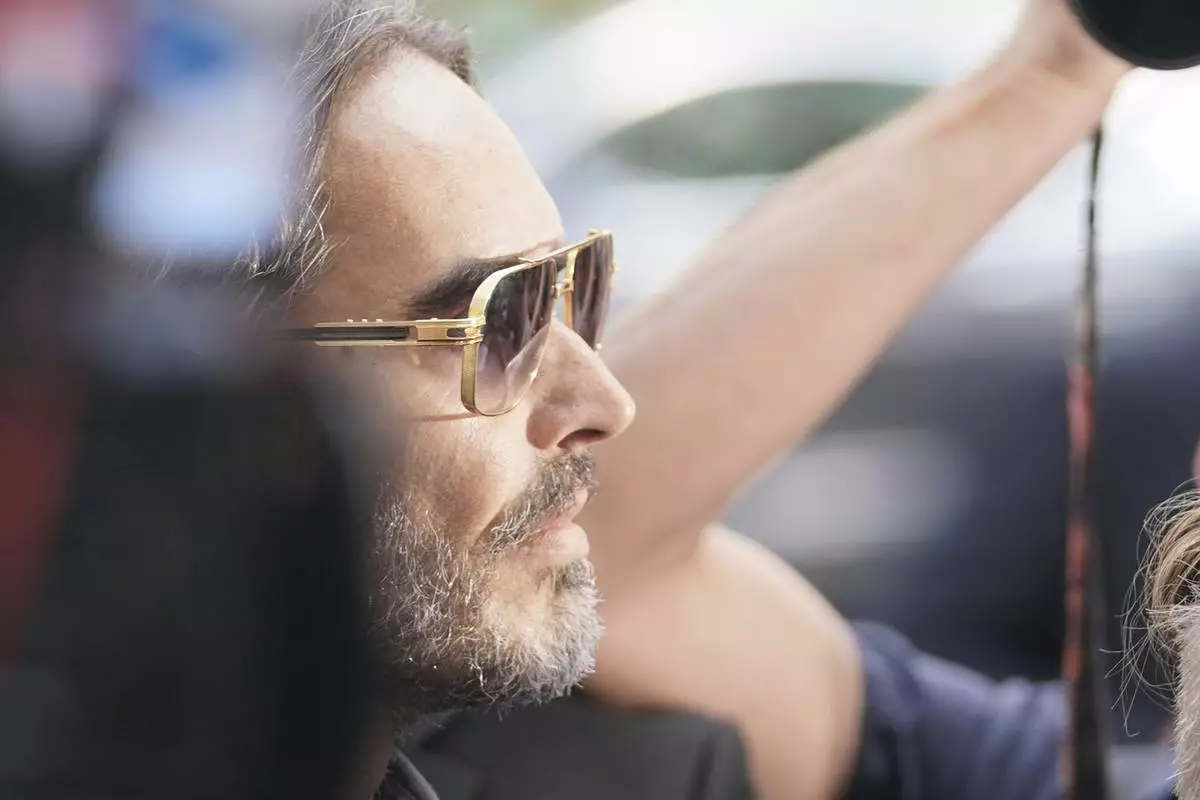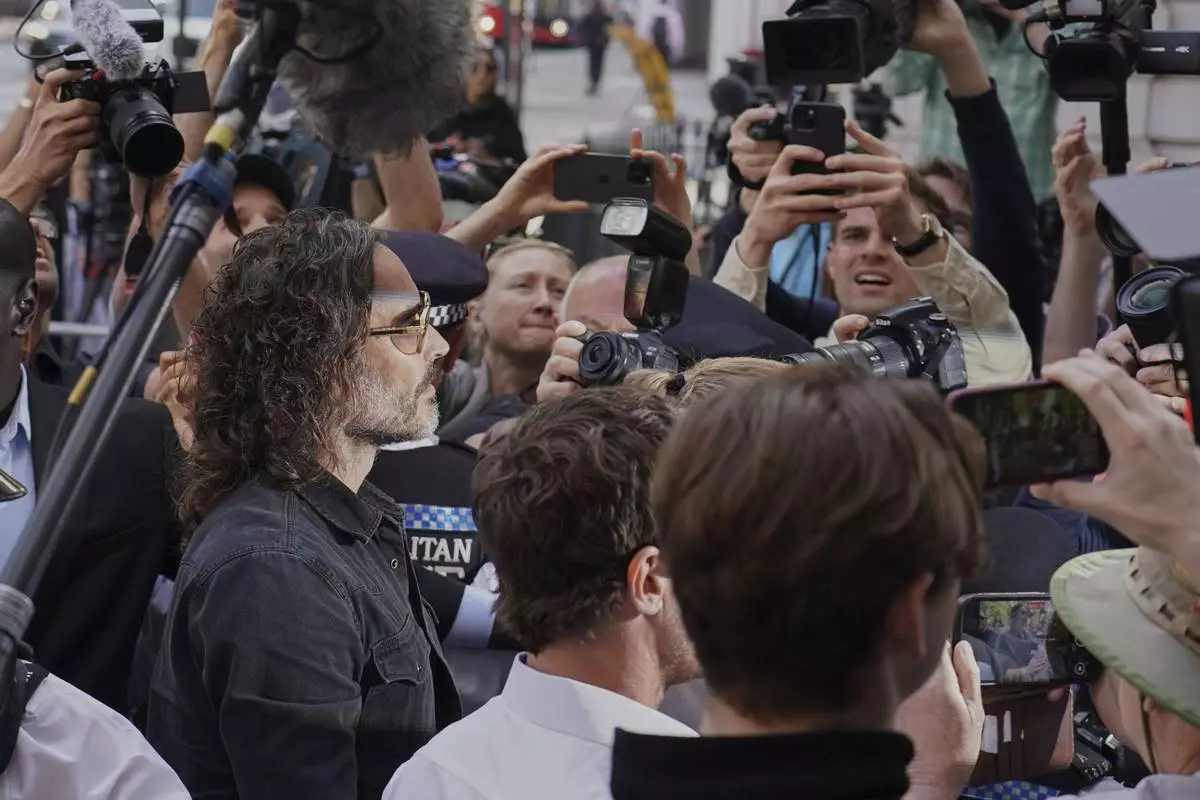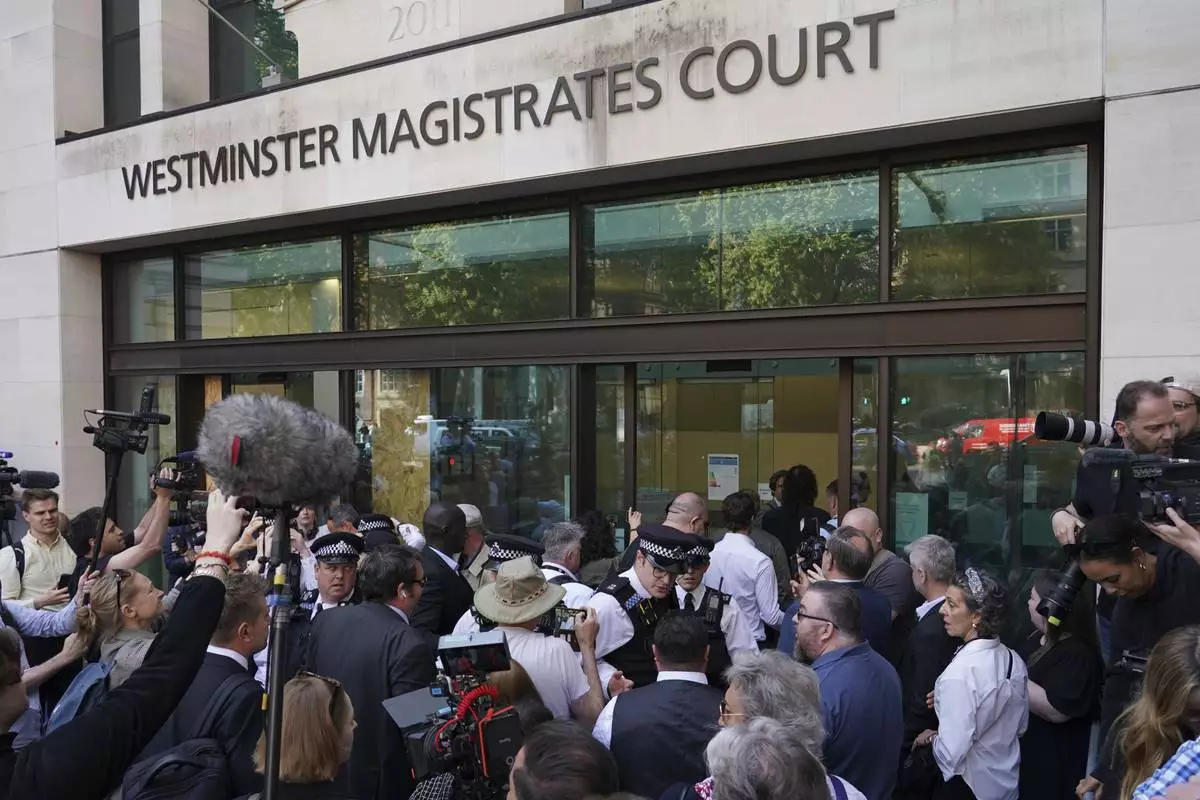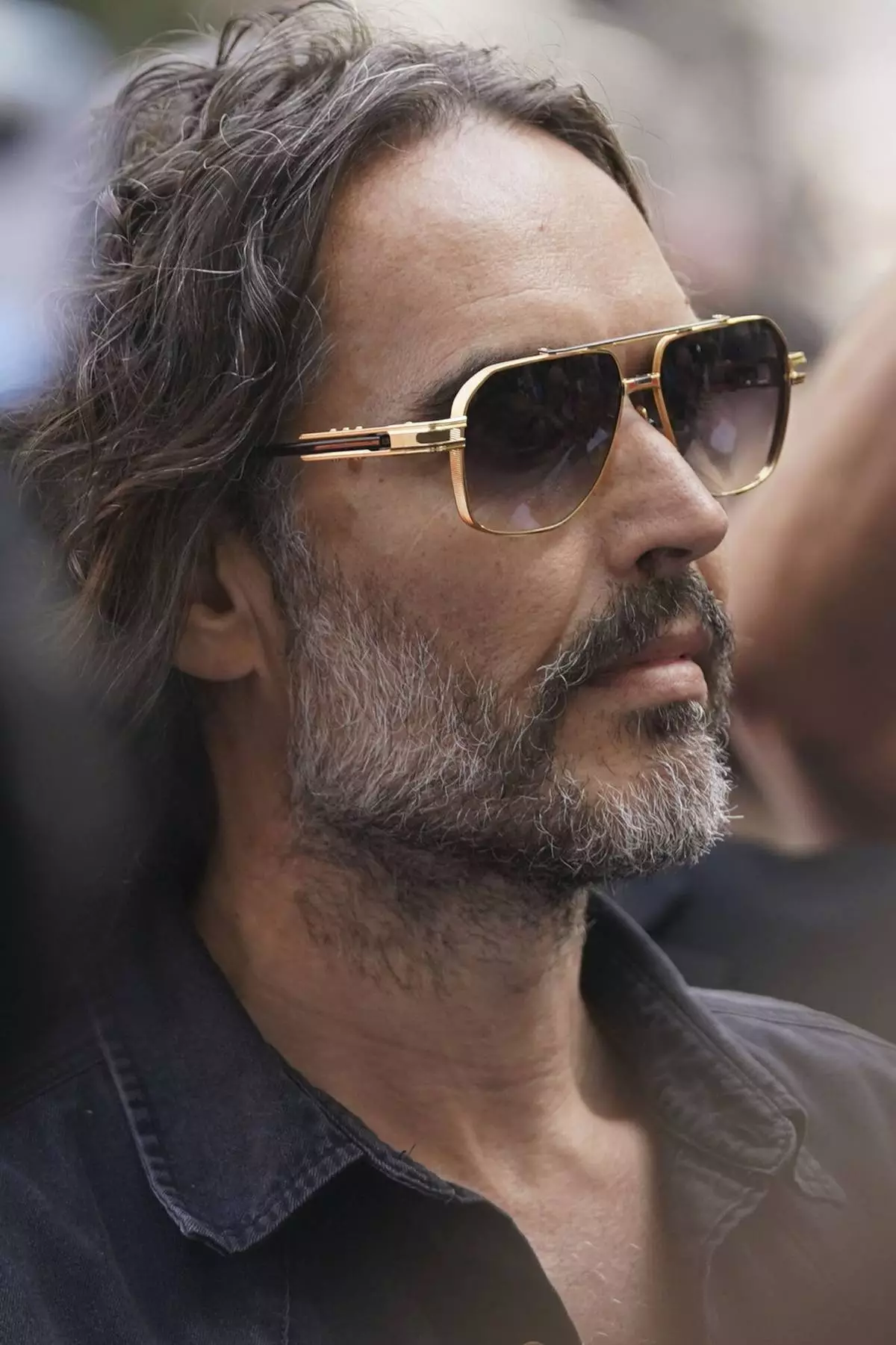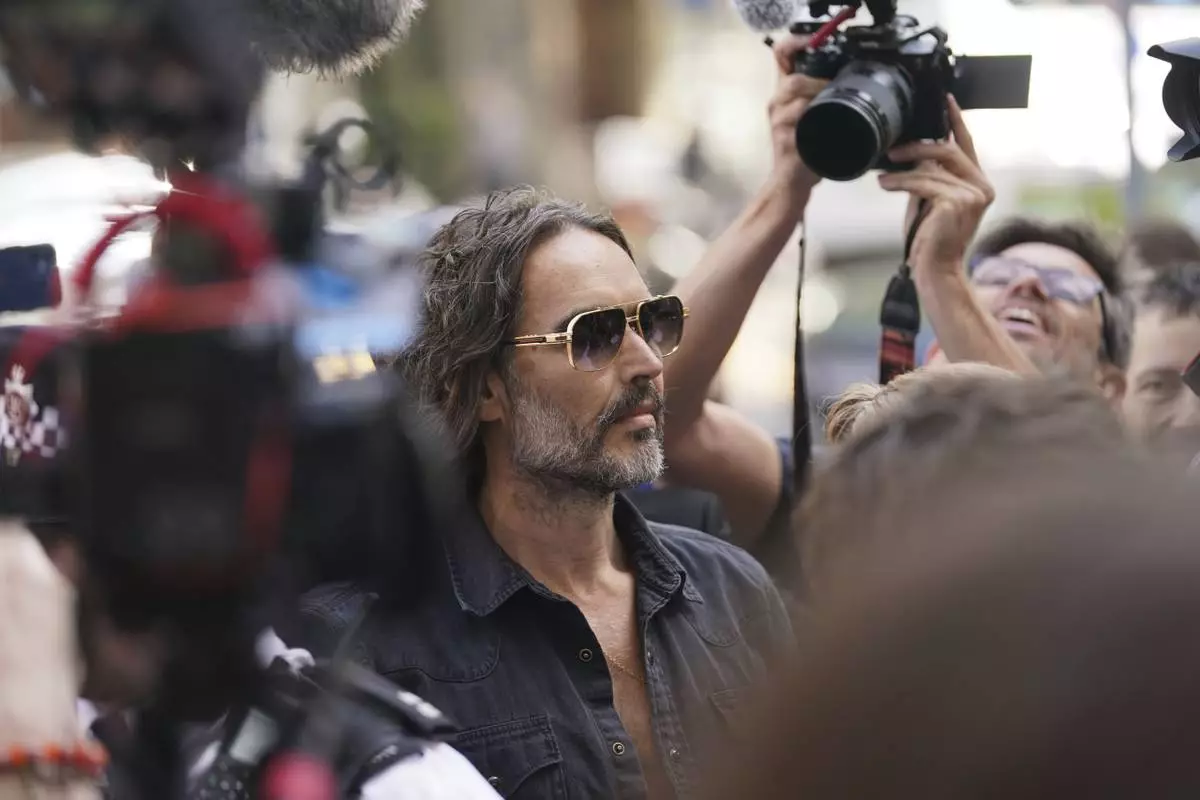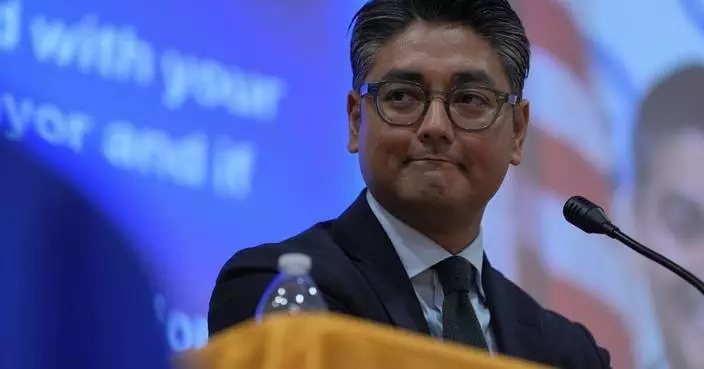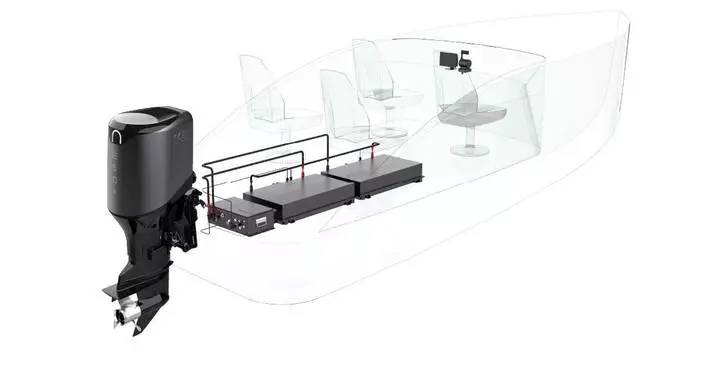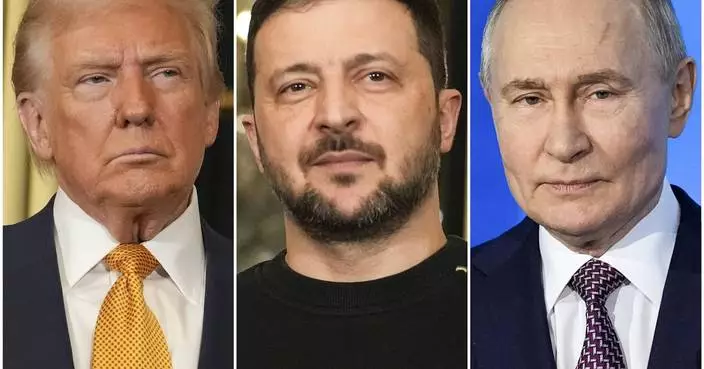NEW YORK (AP) — The showdown between the Trump administration and Harvard University is spotlighting bare-knuckled politics and big dollar figures. But in the battle of the moment, it’s easy to lose sight of a decades-long alliance between the U.S. government and the nation’s most prominent universities, forged to fight a world war.
For more than 80 years, that interdependence has been prized by academic leaders and politicians of both parties as a paragon for American discovery and innovation.
“In some ways I think it’s a core part of the story of contemporary America,” said Jason Owen-Smith, a University of Michigan professor who studies the scope of research on the nation’s campuses. “Harvard’s an exemplar, but it’s not the only one.”
That explains the more than $2 billion in multi-year grants and contracts to Harvard frozen this week by administration officials after the school defied their demands to limit activism on campus.
The grants are testament to a system that has its roots in the early 1940s, when the U.S. government began securing cutting edge research through a singular partnership. Federal officials provided money and oversight; institutions, led by big state and private universities, used those billions of dollars to plumb the unknowns of science and technology, while training new generations of researchers.
The partnership delivered wartime innovations including the development of radar at the Massachusetts Institute of Technology and, decades later, the birth at Stanford University of what became Google.
Now the Trump administration is trying something many other chief executives have avoided: imposing ideology on a partnership that has long balanced accountability with independence.
“A lot of Americans are wondering why their tax dollars are going to these universities when they are not only indoctrinating our nation’s students, but also allowing such egregious illegal behavior to occur,” White House press secretary Karoline Leavitt said during a briefing with reporters this week.
But longtime observers of the partnership between government and universities see the administration's actions very differently.
“It’s never been politicized the way the Trump administration is doing it because it’s always had bipartisan support,” says Roger Geiger, a historian of higher education who is retired from Penn State. “It’s unusual that we don’t see that support now.”
Cutting off Harvard follows similar moves at Columbia and other prominent universities to force compliance. At the same time, Johns Hopkins University surrendered more than $800 million in federal grants for health and medical programs after the administration began dismantling the U.S. Agency for International Development and cut funding by the National Institutes of Health.
The dollar figures for use in domestic laboratories and programs overseas might seem surprising to a public most familiar with big universities as centers of teaching and student life.
But to make sense of the current battle, it helps to understand how government and universities came to be so interdependent.
A century ago, a much smaller community of research universities relied largely on private funding. But as U.S. officials scrambled to prepare for entry into World War II in 1940, a former MIT dean, Vannevar Bush, pitched President Franklin D. Roosevelt on the critical need to marshal defense research by partnering government with scientists at universities and other institutions.
“Urgency in the 1940s was really the overriding motivation,” said G. Pascal Zachary, author of a biography of Bush. “But the structure proved durable.”
Bush’s agency oversaw the quest for the first nuclear weapons, developed at a laboratory administered by the University of California. And when fighting ended, he prevailed on Roosevelt to expand the research partnership to ensure national security, foster scientific and medical discovery, and grow the economy.
“It is only the colleges, universities, and a few research institutes that devote most of their research efforts to expanding the frontiers of knowledge,” Bush wrote in a 1945 report to Roosevelt, laying out his plan.
Federal funding for research remained limited, however, until the Soviet Union launched the first artificial satellite in 1957. Determined to catch up, U.S. lawmakers approved a stream of funding for university research and training of new scientists.
“We were locked into the Cold War, this battle with the Soviet Union, that was in many ways a scientific and technological battle,” said Jonathan Zimmerman, an education historian at the University of Pennsylvania.
Research schools, which number between 150 and 200, used the inflow of federal dollars to build labs and other infrastructure. That growth came as enrollment climbed, with the government’s paying for veterans to attend college through the G.I. Bill and measures in the 1960s to help poorer students.
The partnership between government and universities has always come with a built-in tension.
Federal officials are at the helm, awarding money to projects that meet their priorities and tracking the results. But it is explicit that government officials do not control the work itself, allowing researchers to independently pursue answers to questions and problems, even if they don’t always find them.
“The government gets to basically treat a generally decentralized national system of universities as a pay-as-you-go resource to get problems solved,” Michigan’s Owen-Smith said.
With that understanding, universities have become the recipient of about 90 percent of all federal research spending, taking in $59.6 billion in 2023, according to the National Center for Science and Engineering Statistics.
That accounts for more than half the $109 billion spent on research at universities, with most of the rest coming from the schools themselves, state and local governments and nonprofits.
Johns Hopkins has been the single largest grantee, accounting for $3.3 billion in federal spending in 2023. Federal dollars for research at the University of Washington, Georgia Institute of Technology, UC San Diego and Michigan also exceeded more than $1 billion each. Harvard received about $640 million.
Moves by the Trump administration to close agencies and impose changes on campuses present universities with an unprecedented threat.
“Generations of Hopkins researchers have brought the benefits of discovery to the world,” the school’s president, Ronald J. Daniels, wrote recently. “However, a fast and far-reaching cascade of cuts to federal research funding across higher education is badly fraying this long-standing compact.”
The partnership is supposed to be protected by guardrails. Rules specify that officials who believe a school is violating the law can’t just cut funding but must instead present details of alleged violations to Congress.
But the Trump administration, bent on making schools change policies designed to encourage diversity on campuses and crack down on protests, is ignoring those rules, Zimmerman said.
Funding cuts will likely put pressure on schools’ remaining resources, leaving them with less money for things like financial aid to students of modest means, he said. But the bigger danger is to academic freedom of schools to teach and do research as they see fit.
“Let’s remember that in the past three months we’ve seen people" at universities "scrubbing their websites for references to certain words,” he said. “That’s what happens in authoritarian countries.”
Associated Press writer Zeke Miller in Washington contributed to this report.
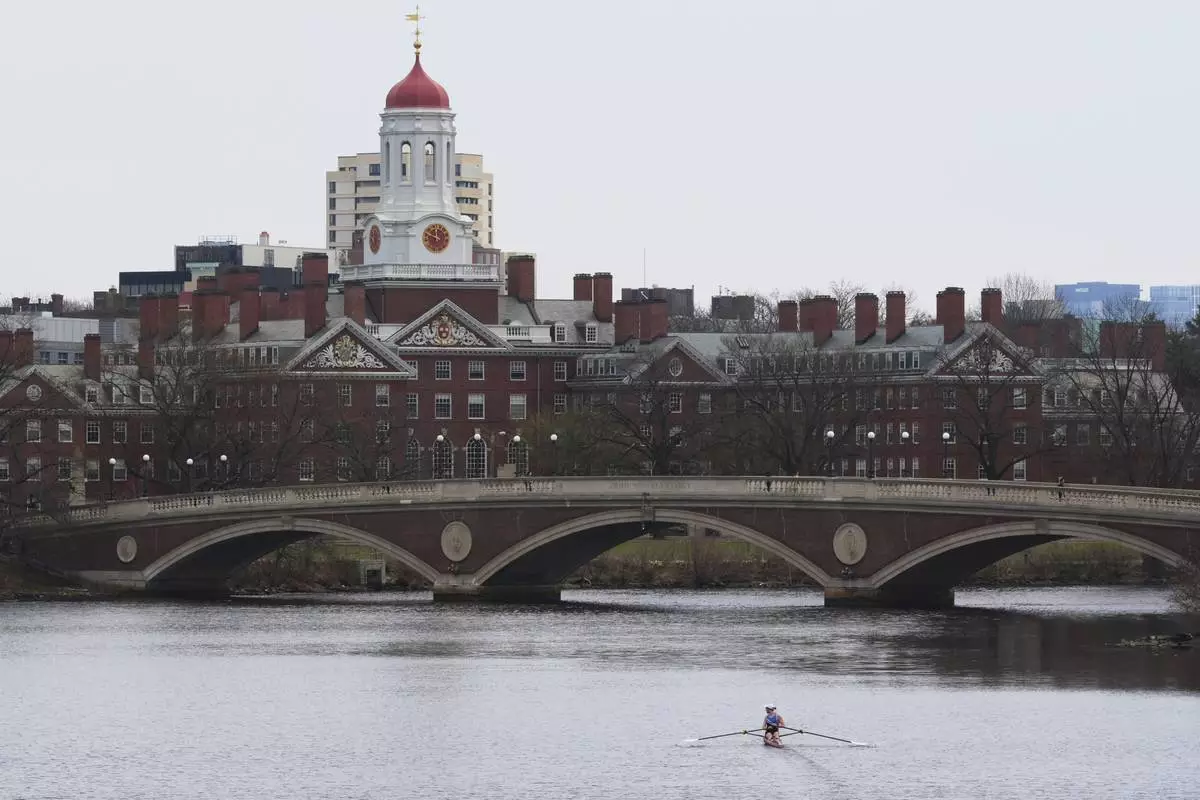
A sculler rows down the Charles River near Harvard University, at rear, Tuesday, April 15, 2025, in Cambridge, Mass. (AP Photo/Charles Krupa)
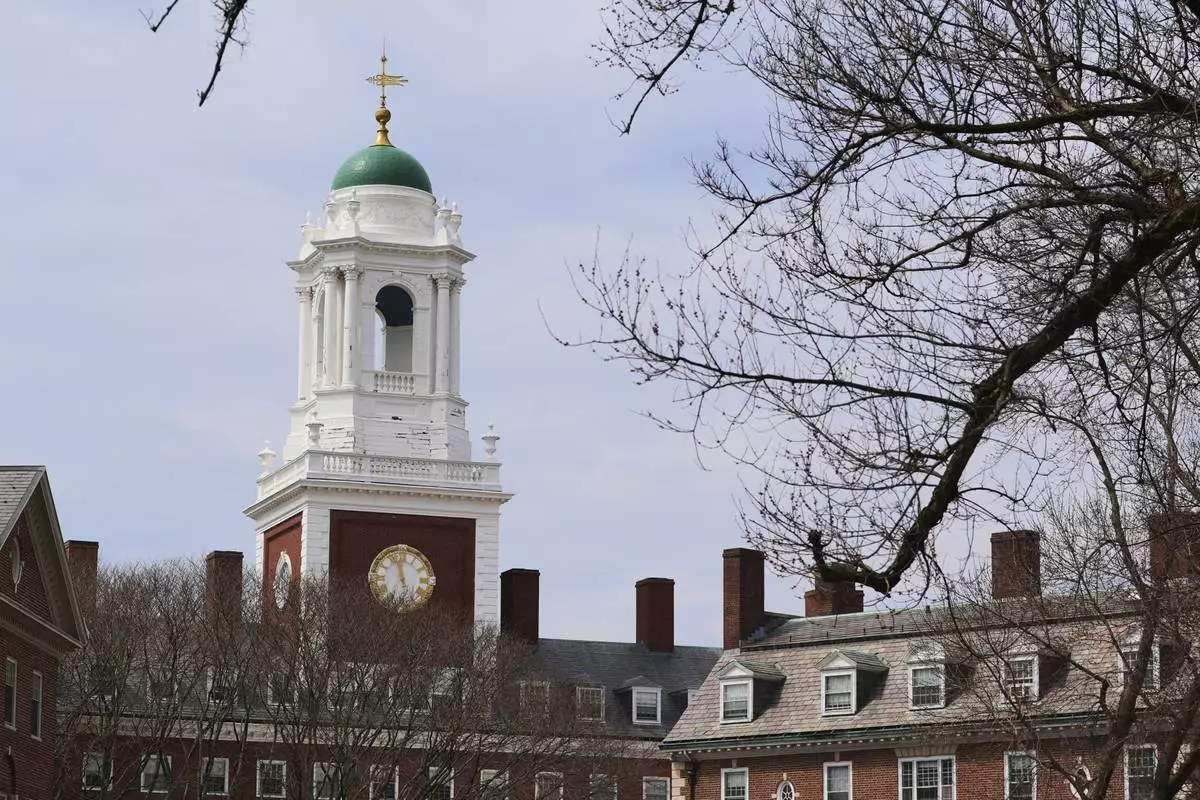
Spring buds appear on a tree near Eliot House, rear, at Harvard University, Tuesday, April 15, 2025, in Cambridge, Mass. (AP Photo/Charles Krupa)
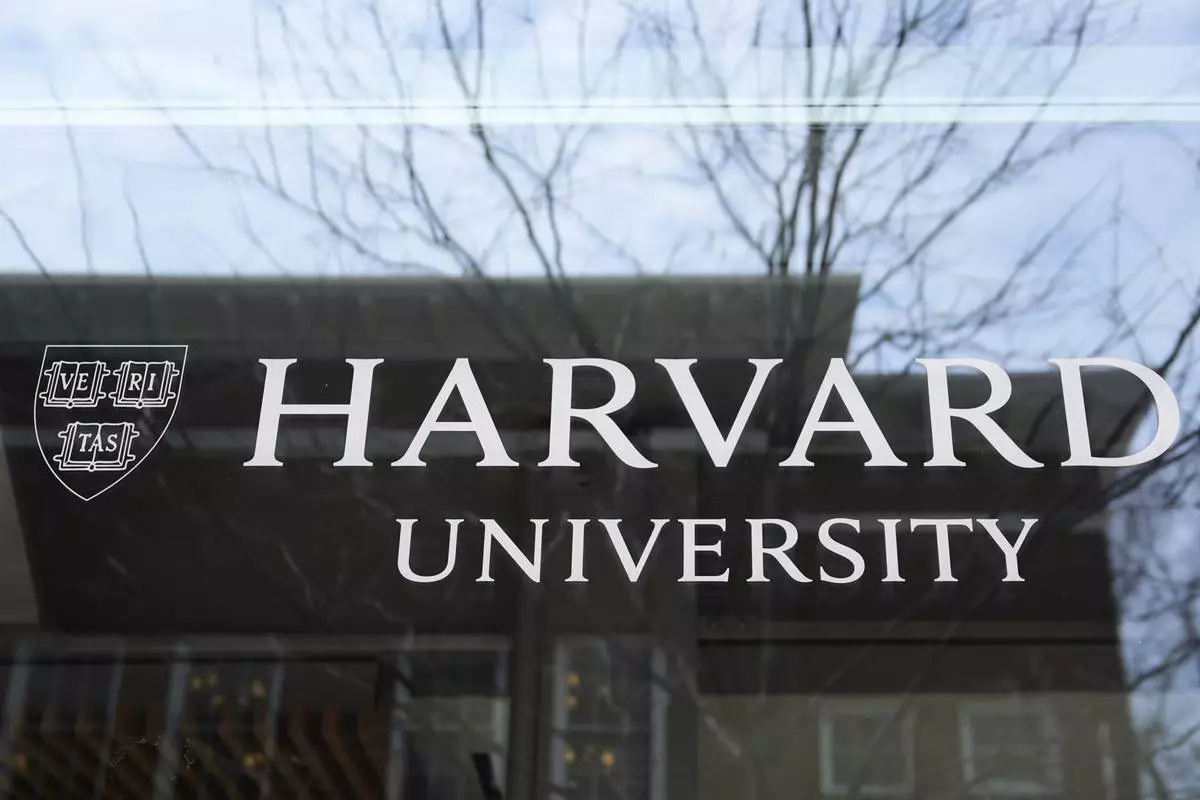
The Harvard University logo is displayed on a building at the school, Tuesday, April 15, 2025, in Cambridge, Mass. (AP Photo/Charles Krupa)


